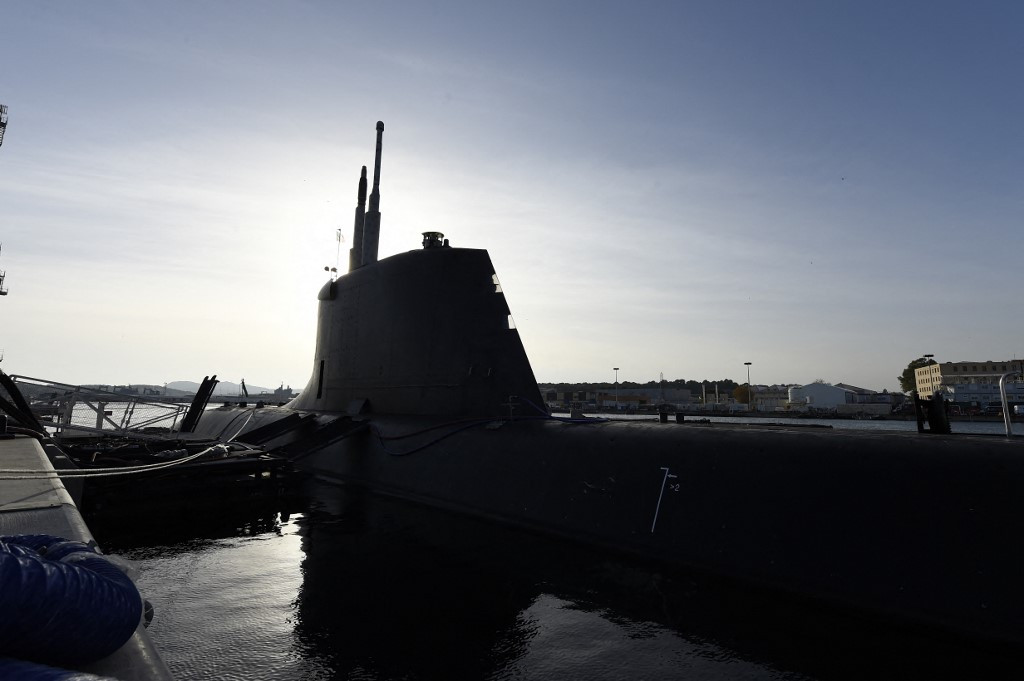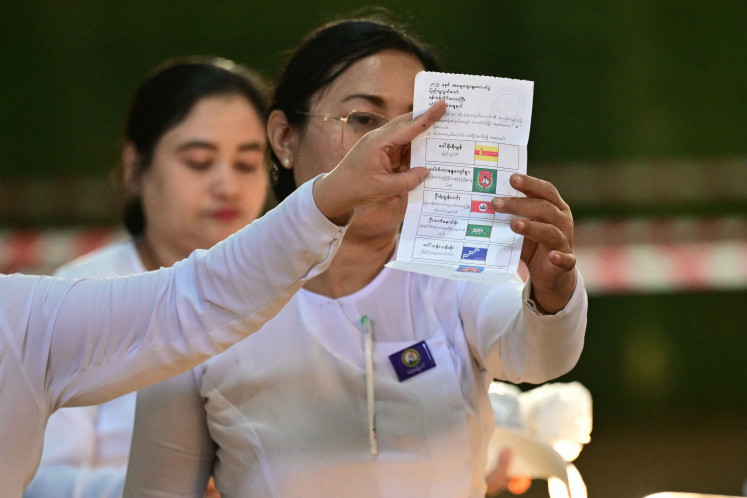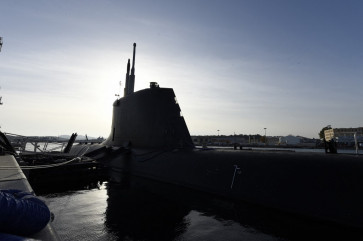Popular Reads
Top Results
Can't find what you're looking for?
View all search resultsPopular Reads
Top Results
Can't find what you're looking for?
View all search resultsAUKUS and the potential for an Indo-Pacific Cold War
Indonesia and ASEAN must take a stronger stance, now that AUKUS has raised the possibility of Australia becoming a nuclear power in an Indo-Pacific face-off.
Change text size
Gift Premium Articles
to Anyone
T
he binding trilateral security pact between Australia, the United Kingdom and the United States (AUKUS) that allows the development of nuclear submarines for Canberra has sparked concern over an arms race and the return of the Cold War era in the Indo-Pacific.
Not only will Australia receive nuclear submarine technology, it may also gain other strategic weapons, including ballistic missiles, long-range anti-ship missiles and the development of quantum and artificial intelligence technologies.
This significant effort to strengthen the Australian Defence Force (ADF) is believed to be another tool to address China’s assertiveness in the region. The theaters of conflict are the East China Sea and the South China Sea, of which the latter has seen a show of force by US and NATO aircraft carriers in recent months.
AUKUS has also ignited a diplomatic crisis between France on one side and the US and Australia on the other side, after Australia cancelled its US$90 billion order for 12 conventional submarines from France. Paris has even recalled its ambassadors from Canberra and Washington in response over the security pact.
Reactions from Indo-Pacific countries were inevitable. Indonesia’s Foreign Ministry expressed concern “over the continuing arms race and power projection in the region”. Furthermore, Jakarta called on Australia “to maintain its commitment towards regional peace, stability and security in accordance with the Treaty of Amity and Cooperation” in Southeast Asia.
China has also criticized the pact as potentially reverting the world to the Cold War era and igniting an arms race in the region. This would disrupt security and stability in the region, which has already reached a state vulnerable to potential armed conflicts in the East and South China seas.
AUKUS adds to the defense and security pacts that already exist as an effort to counter China’s growing power in the Indo-Pacific. The region is already familiar with the Five Eyes (FVEY) intelligence alliance between the US, the UK, Australia, New Zealand and Canada, as well as the Quadrilateral Security Dialogue (Quad) between the US, Australia, Japan and India.


















